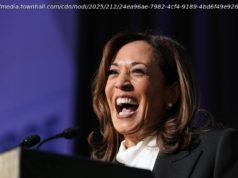President Trump frequently claims, without evidence, that journalists make up sources. This is widely recognized to be a fib at best and a lie at worst.
On Thursday the Trump administration held a « background briefing » where a « senior White House official » provided information to reporters from The New York Times, CNN and lots of other news outlets.
On Saturday, President Trump claimed the aide « doesn’t exist. »
It’s a flagrant example of Trump’s problem with the truth.
The president frequently claims, without evidence, that journalists make up sources. This is widely recognized to be a fib at best and a lie at worst.
He said it again in a tweet against The Times on Saturday: « Use real people, not phony sources. »
But members of the White House press corps quickly pointed out that the unnamed « official » met with a roomful of reporters. Trump’s claim was easily proven false.
To attend the briefing — about the status of President Trump’s possible summit with North Korean leader Kim Jong Un — reporters had to agree to leave the aide’s name out of their stories.
This tactic, a « background briefing, » is frequently employed by White House press shops. Reporters regularly object to it, but it’s a long standing fact of White House coverage.
At Thursday’s briefing, the aide was asked to justify the anonymous nature of the Q&A, and the official said the White House wanted to « let the president’s remarks stand. »
So on Thursday the aide was identified in stories as « a senior White House official » or « a senior administration official. »
The aide discussed Trump’s surprise decision to cancel the June 12 summit between the United States and North Korea.
According to CNN’s report, the official « downplayed the likelihood of the summit proceeding on course. »
Among other things, the official said « the ball is in North Korea’s court right now, and there’s really not a lot of time. »
The aide added, « June 12th is in 10 minutes. »
By the next day, Trump was talking about rescheduling the summit. In a story for Saturday’s paper, The New York Times pointed out the disconnect between what Trump was saying and what his aides had been saying.
The Times wrote: « On Thursday, for example, a senior White House official told reporters that even if the meeting were reinstated, holding it on June 12 would be impossible, given the lack of time and the amount of planning needed. »
Trump singled out the « impossible » sentence in his faulty tweet on Saturday. He evidently objected to that word. Technically the aide did not say the June 12 date was « impossible, » but that was the impression the Times reporters came away with, based on the tone and tenor of Thursday’s briefing.
‘If’: The magic word for President Trump’s conspiracy theory
Trump wrote on Saturday: « The Failing @nytimes quotes ‘a senior White House official,’ who doesn’t exist, as saying « even if the meeting were reinstated, holding it on June 12 would be impossible, given the lack of time and the amount of planning needed. » WRONG AGAIN! Use real people, not phony sources. »
« Impossible » is open to interpretation. But the White House official definitely exists.
David Sanger, one of the two reporters who wrote the story, tweeted in response, « The reason that this official was not named in our story is that the White House press office insisted that its briefing — for hundreds of reporters — was on background. Best way to alleviate the President’s concern about anonymous sources would be for WH to name the official. »
Sanger’s colleague Maggie Haberman added: « Imagine being the WH background briefer who led this briefing, who now has his boss — the president of the US — saying he/she doesn’t exist. »
The dust-up caused some onlookers to laugh and others to lament Trump’s constant attacks against the press.
It also lent credence to « 60 Minutes » correspondent Lesley Stahl’s recent remarks about Trump’s real anti-media agenda.
Stahl recalled saying to Trump, « That is getting tired, why are you doing it? »
According to Stahl, he replied, « You know why I do it? I do it to discredit you all and demean you all so when you write negative stories about me no one will believe you. »
Home
United States
USA — Political The curious case of the White House official Trump says 'doesn't exist'






